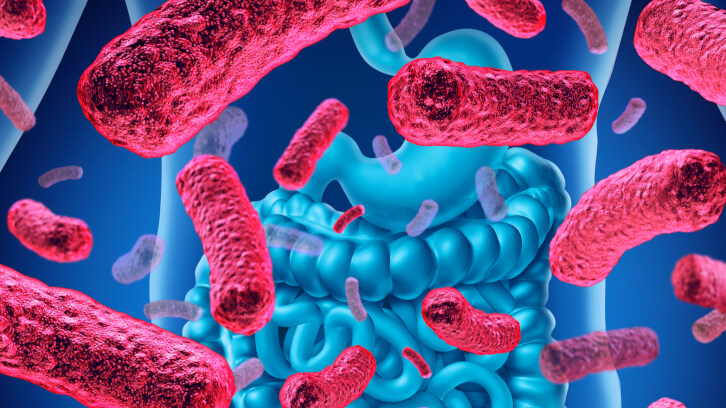“Altogether, only few studies have shown beneficial effects of probiotics on NSAID-induced GI mucosal injury and Bif195 is, to our knowledge, the first bacterial biotherapeutic that has shown significant reductions in [aspirin]-induced mucosal injuries in both the stomach and the small intestine,” wrote researchers from global bioscience company Chr. Hansen and the University of Copenhagen.
The research, published in the Wiley Online Library, was funded by Chr. Hansen, which provided the Bif195 and placebo capsules used in the study.
“Long-term aspirin use is associated with an increased risk of gastrointestinal damage and bleeding in the stomach and the duodenum, which precludes a considerable number of people from benefitting from the well-established protective effects for the cardiovascular system,” explained Sarah Ensel, senior clinical development scientist at Chr. Hansen and researcher in the study.
“Considering the extensive use of aspirin globally, we believe our results suggest potential for our probiotic strain Bifidobacterium breve, Bif195 to benefit a significant number of people worldwide,” she told NutraIngredients.
Aspirin and stomach damage
Aspiring, also known as acetylsalicylic acid (ASA), is well-established in terms of its pain-relieving, fever-reducing and cardio-protective properties. The study noted that in the U.S., it was regularly administered to more than 35 million people from 2012 to 2015, however chronic usage has been associated with an increased risk of gastrointestinal injury resulting from the formation of peptic ulcers. This has recently led to changes in the U.S. Preventive Task Force’s recommendations on ASA use.
Previous research shows the potential for the therapeutic application of probiotics in the prevention of ASA-related gastric adversities, with a study reporting that the strain Bifidobacterium breve Bif195 resulted in a reduced presence of ulcers when co-administered with ASA.
The present trial sought to continue this research into the potential beneficial effects of Bif195 on ASA-induced mucosal damages in the stomach and duodenum.
Study details
The randomised controlled trial recruited 25 healthy male and female participants between the ages of 18 and 40 years. In the crossover design, all subjects underwent two four-week intervention periods. The first involved the daily administration of 300 mg of ASA paired with Bif195 ≥ 1011 colony-forming units for 28 days, followed by a 6-week washout period, and ASA with a placebo for a further 28 days. The second intervention was conducted vice versa.
For clinical evaluation of the mucosal wall, the stomach was endoscopically assessed, and a validated 5-point Lanza scale was used. The change in Lanza score served as primary end point, with a range of 0 (normal mucosa) to 4 (>10 erosions or ulcer).
The researchers observed significant increases in the Lanza scores in all participants during the placebo treatment compared to baseline. In contrast, supplementation with the bacterial strain Bif195 resulted in a significantly reduced gastric Lanza score, suggesting its ability to reduce damage caused by ASA. However, there were no significant changes in Lanza score noted in the duodenum of the participants.
“This study shows that the benefits of this probiotic strain to the small intestine, previously identified by Mortensen and colleagues (Gastroenterology, 2019), are also evident in the stomach,” Engel emphasised. “This reinforces previous findings that the Bifidobacterium breve, Bif195™ strain can have a protective effect on gastrointestinal damage caused by aspirin,” she added.
The researchers conclude that the findings may suggest that Bif195 may serve as a safe supplement for use during multiple-dosing aspiring treatments.
They added that the mechanism of action behind the beneficial Bif195 effects requires further investigation but that several have been suggested for the B. breve species including proliferative, anti-inflammatory and barrier enhancing effects.
Source: Wiley Online Library
doi: 10.1111/apt.17817
“Bifidobacterium breve Bif195 ameliorates aspirin-induced gastric mucosal damage: A randomised, double blind, placebo-controlled crossover trial”
Authors: Nina Løn et al.
